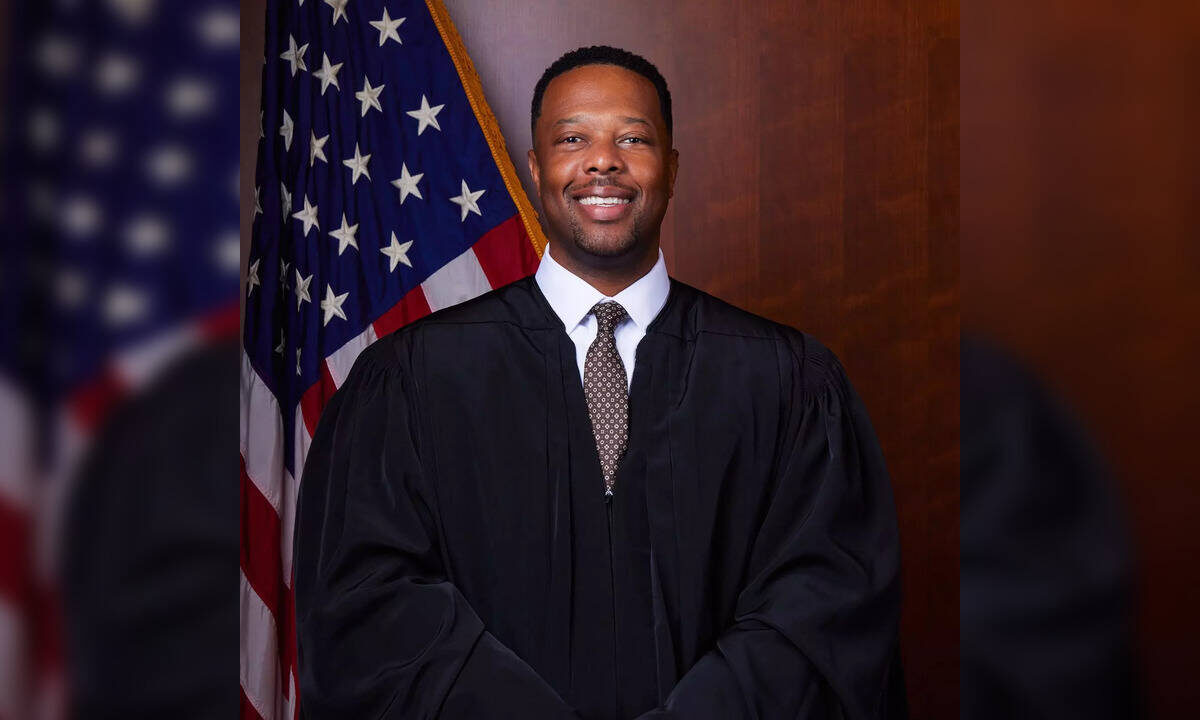Judge Jamal Whitehead slams DOJ for ‘political witch hunt’ in transgender care case: What to know

Judge Jamal Whitehead. Image Source: X
A federal judge in Seattle, Jamal N. Whitehead, has delivered a landmark ruling against the Justice Department (DOJ), accusing it of abusing its authority in an effort to obtain confidential medical data from a transgender health provider. The decision marks a sharp legal and political setback for the Trump administration’s campaign targeting gender-affirming care across the U.S.
In his 16-page order, Judge Whitehead described the DOJ’s actions as “prosecutorial coercion,” ruling that the subpoena issued to QueerDoc, a telehealth provider offering gender-affirming care in ten states, served an “improper purpose.” The judge said the move appeared aimed at intimidating providers into abandoning care, not investigating potential fraud, a violation of the agency’s legitimate authority.
Whitehead Condemns DOJ’s “Political Agenda” Under Attorney General Pam Bondi
Whitehead’s ruling directly challenged Attorney General Pam Bondi’s public comments, which described gender-affirming procedures as “mutilation.” He cited her statements as evidence of a politically motivated campaign to eliminate care for transgender individuals. “The Government seeks the intended effect of its Executive Orders, to downsize or eliminate all gender-affirming care,” Whitehead wrote, adding that “no clearer evidence of improper purpose could exist.”
The judge noted that the subpoenas demanded five years’ worth of highly personal data, including names, birthdates, Social Security numbers, and medical histories of QueerDoc’s patients. The request also sought provider information, insurance claims, and records with pharmaceutical companies, an unprecedented intrusion into protected patient privacy under HIPAA.
READ ALSO
Pam Bondi vs Senate Democrats: What to know about the heated Senate Judiciary clash
A Broader Pattern of Pressure on Gender-Affirming Care Providers
The subpoena to QueerDoc was one of 20 issued nationwide as part of an aggressive DOJ probe announced in July 2025. Officials said the effort was aimed at identifying potential Medicaid fraud related to youth gender treatments, but Judge Whitehead found no basis for that claim. Instead, he wrote, the campaign “appears calculated to intimidate rather than investigate.”
This ruling follows similar legal defeats for the DOJ, including one in Boston where Judge Myong Joun blocked a subpoena targeting Boston Children’s Hospital. Several other cases involving hospitals in Philadelphia and Pittsburgh remain pending. Together, these rulings signal a growing judicial pushback against the federal government’s use of investigative power to pursue ideological policy goals.
Implications for Trump’s Broader Policy and the Future of Transgender Health Rights
Judge Whitehead’s decision delivers a major blow to the Trump administration’s broader push to restrict transgender medical care, a policy that has drawn criticism from leading medical organizations including the American Academy of Pediatrics and the American Medical Association. Both groups affirm that gender-affirming care is evidence-based and essential for the well-being of trans youth.
Legal analysts say the ruling could serve as a precedent limiting future government overreach into medical privacy and reinforce protections for providers offering transgender care in states where such treatment remains legal. While the Justice Department has not announced whether it will appeal, the decision represents a powerful defense of patient confidentiality and judicial independence amid one of America’s most divisive policy debates.
FAQ — Jamal Whitehead DOJ Ruling Explained
Q: Who is Judge Jamal Whitehead?
A: Judge Jamal N. Whitehead is a U.S. District Court Judge in Seattle appointed by President Joe Biden. He previously served as a labor attorney and is known for rulings that emphasize civil rights and judicial fairness.
Q: What did Judge Whitehead rule in this case?
A: He ruled that the Department of Justice’s subpoena targeting QueerDoc was issued for an “improper purpose,” accusing the agency of using its authority to intimidate providers of transgender care rather than investigate legal wrongdoing.
Q: Why did the DOJ target QueerDoc?
A: The DOJ claimed it was investigating potential fraud, but Judge Whitehead found the subpoena politically motivated, part of the Trump administration’s push to limit gender-affirming medical care nationwide.
Q: How did Attorney General Pam Bondi react?
A: Bondi defended the subpoenas, saying the DOJ would “use every legal tool” to protect children from being “mutilated under the guise of care.” Her comments were cited by Whitehead as proof of political bias.
Q: What does this mean for transgender health care providers?
A: The ruling strengthens legal protections for providers and patients, affirming that the federal government cannot use subpoenas to intimidate or restrict legitimate medical care protected by law.
Q: Are there other similar cases?
A: Yes. Similar subpoenas issued to Boston Children’s Hospital and others have been blocked by federal judges, marking a trend of judicial resistance to politically motivated investigations.
Q: Could the DOJ appeal this decision?
A: The Justice Department has not confirmed an appeal, but if it does, the case could escalate to the 9th Circuit Court of Appeals.
Q: How does this ruling impact transgender rights overall?
A: It reinforces medical privacy, supports providers offering gender-affirming care, and represents a legal victory for advocates fighting state and federal attempts to limit transgender health care.
Q: What are experts saying about the decision?
A: Legal and medical experts describe it as a critical affirmation of judicial independence and patient confidentiality amid rising political efforts to curtail LGBTQ+ rights.

